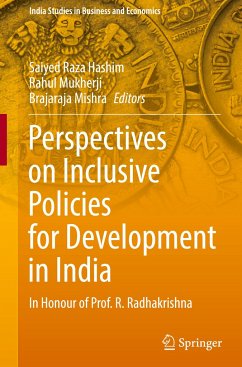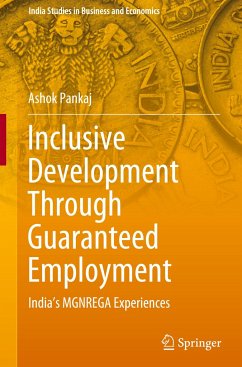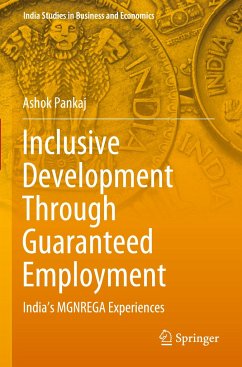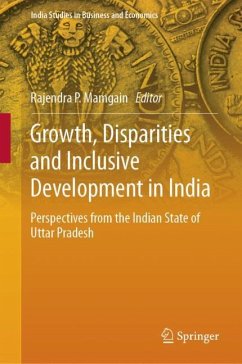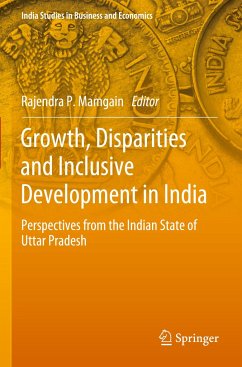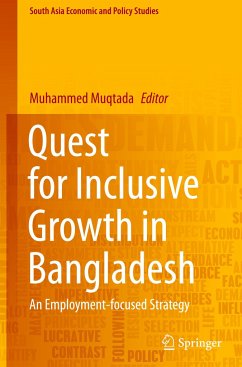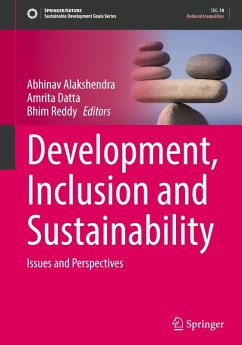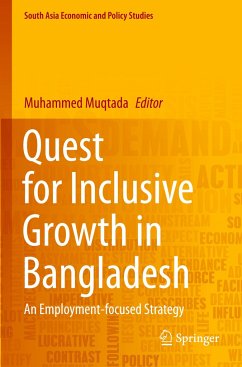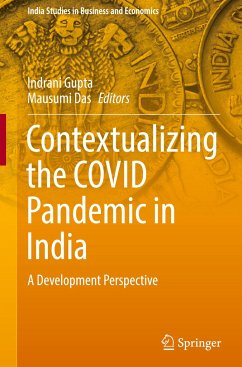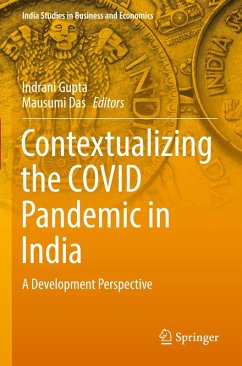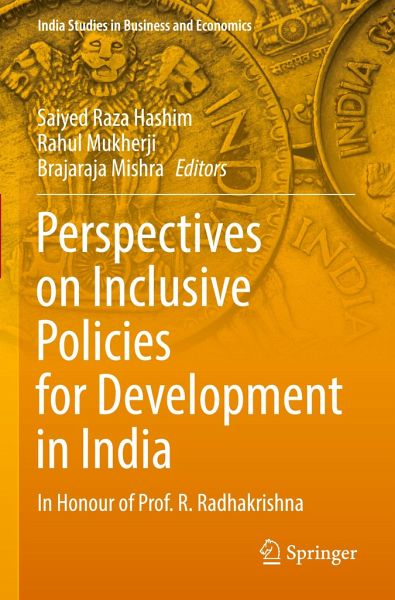
Perspectives on Inclusive Policies for Development in India
In Honour of Prof. R. Radhakrishna
Herausgegeben: Hashim, Saiyed Raza; Mukherji, Rahul; Mishra, Brajaraja
Versandkostenfrei!
Versandfertig in 6-10 Tagen
121,99 €
inkl. MwSt.

PAYBACK Punkte
61 °P sammeln!
This book presents perspectives by eminent economists, social scientists and policy makers, exploring in depth the post-reform developments in India, including issues pertaining to growth and equity, issues which have been at the core of life-time work of Prof. R. Radhakrishna. The book brings out how some public policy instruments created to promote growth have turned out to be regressive, promoting inequalities and creating a highly asymmetric federalism in India. It examines the efficacy of fiscal and monetary reforms and also emphasises the need for strengthening the institutions of govern...
This book presents perspectives by eminent economists, social scientists and policy makers, exploring in depth the post-reform developments in India, including issues pertaining to growth and equity, issues which have been at the core of life-time work of Prof. R. Radhakrishna. The book brings out how some public policy instruments created to promote growth have turned out to be regressive, promoting inequalities and creating a highly asymmetric federalism in India. It examines the efficacy of fiscal and monetary reforms and also emphasises the need for strengthening the institutions of governance, particularly judiciary and police, in order to boost investors' confidence. It presents exercises in econometric modelling for explaining factors in growth and vetting policies, and explores the issue of governance and institutions.
The book provides insights into the working of an emerging economy and a large democracy which has to strive for public acceptability of the tensions of its negotiations between equity and growth. With its depth of academic excellence and breadth of topics covered, it is a 'must read' for researchers, policy makers, industry watchers, think tanks, and NGOs.
The book provides insights into the working of an emerging economy and a large democracy which has to strive for public acceptability of the tensions of its negotiations between equity and growth. With its depth of academic excellence and breadth of topics covered, it is a 'must read' for researchers, policy makers, industry watchers, think tanks, and NGOs.





